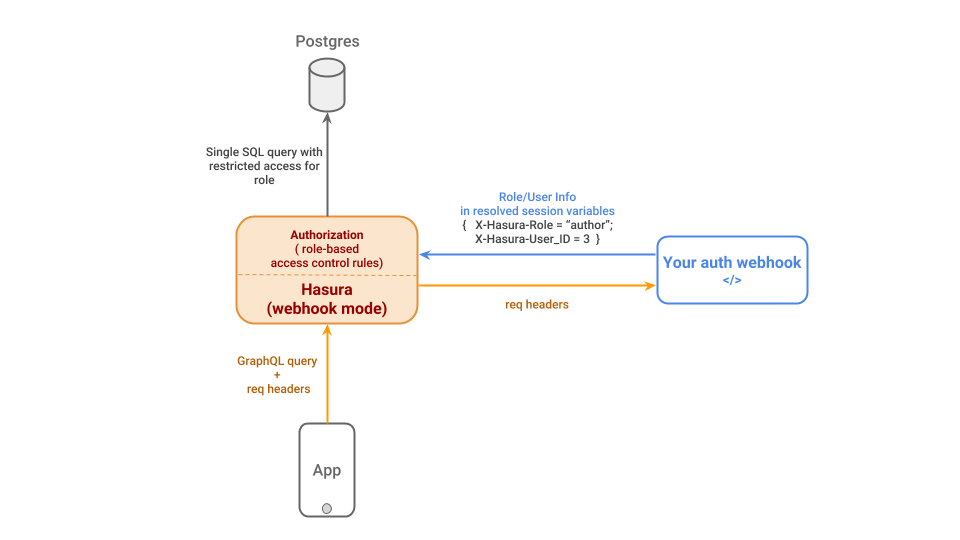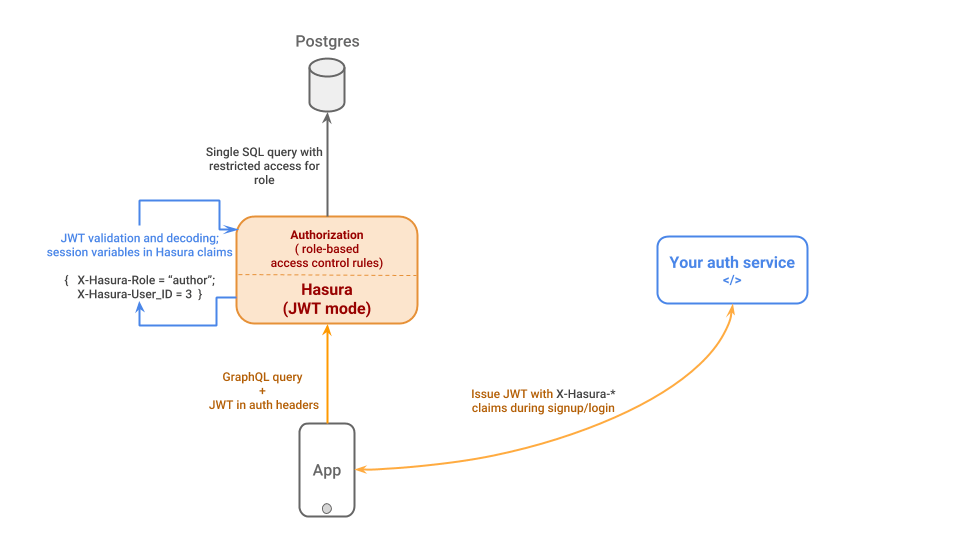Authentication¶
Table of contents
Overview¶
Authentication is handled outside of Hasura. Hasura delegates authentication and resolution of request headers into session variables to your authentication service (existing or new).
Your authentication service is required to pass a user’s role information in the form of session
variables like X-Hasura-Role, etc. More often than not, you’ll also need to pass user information
for your access control use cases, like X-Hasura-User-Id, to build permission rules.
You can also configure Hasura to allow access to unauthenticated users by configuring a specific role which will be set for all unauthenticated requests.
Authentication options¶
Hasura supports two modes of authentication configuration:
1. Webhook¶
Your auth server exposes a webhook that is used to authenticate all incoming requests to the Hasura GraphQL engine server and to get metadata about the request to evaluate access control rules.
Here’s how a GraphQL request is processed in webhook mode:

2. JWT (JSON Web Token)¶
Your auth server issues JWTs to your client app, which, when sent as part of the request, are verified and decoded by the GraphQL engine to get metadata about the request to evaluate access control rules.
Here’s how a GraphQL query is processed in JWT mode:

See more details at:
